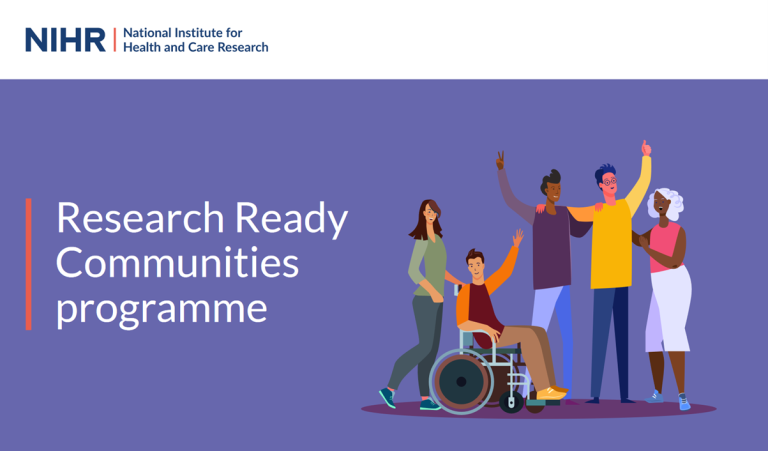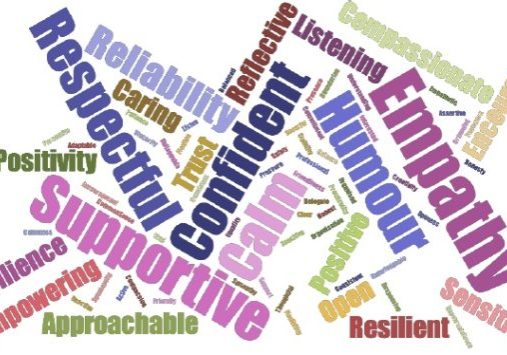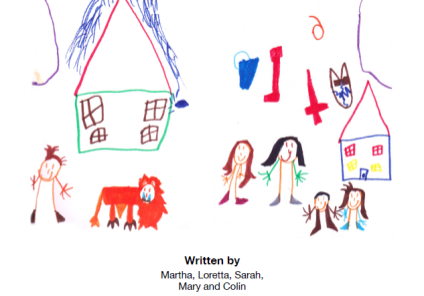What is the Research Ready Communities pilot?
In Autumn 2021, the National Institute for Health & Social Care Research (NIHR) launched their Research Ready Communities pilot as part of their Under-served Communities programme. This programme was established to increase the engagement of under-represented communities in health research. Typically, much of the funding for health research in the UK goes to universities in London, Oxford and Cambridge. But health research is needed the most in places like Blackpool. So, time and again we have seen researchers coming to Blackpool, gathering their data, then going back down south to write their papers. Meanwhile, nothing seems to get any better for community members. In fact, health inequalities have been getting worse in recent years. It’s no wonder that people in Blackpool are reluctant to engage with health research. What reason is there to trust anything will change?
The team at a meeting at the outset of the project
NIHR recognises the need to fix this, so came up with the idea for a Research Ready Communities pilot. The rationale behind the pilot was to give local communities the skills and knowledge they need to take an active role in health research, to break down barriers and build trust. Blackpool was selected as one of the pilot areas, along with Brixton in London and Doncaster in Yorkshire & Humber.
The team at the final day of sharing learning with celebratory certificates and hoodies
So what happened?
The Blackpool pilot took place from September 2021 to May 2022. NIHR originally aimed to recruit six community members as ‘research champions’, enlisting the help of Boingboing CIC, Youthwatch (part of Healthwatch Blackpool), Citizens Advice Blackpool, Headstart Blackpool and Blackpool Council. Thirteen young people were interested, so NIHR’s plans were upscaled to accommodate the increased numbers. The group was split up, with each sub-group focusing on a different aspect of research, such as: mapping community assets; finding out what local people thought and felt about health research; accessing and interpreting health data; using marketing to engage communities; and learning about the systems and processes involved in funding research.
Midway through the pilot, several group members voiced concerns that they were unclear about what decisions were being made and why, and about the overall direction of the project as a whole. There was a general consensus that a lack of co-production was resulting in a sense of disengagement. The group proposed a ‘big reset’ day to NIHR, to clear up uncertainties and get things off to a fresh co-productive start. Throughout the course of this session, NIHR representatives started to better understand the importance of co-production, and what this meant to the team. They listened and acknowledged our way of working, trying to learn and understand what co-production was and why this was essential. It is important to note that not every organisation operates in this way or recognises what this means. NIHR’s willingness to better understand how to co-produce was commendable.
An upshot of this co-productive reset was the desire to continue the pilot beyond the initial phase planned by NIHR. We have now embarked on phase 2 of the project, in which we are pioneering an approach to community-led co-research where we are designing a research project from the ground up ourselves. To be continued…



